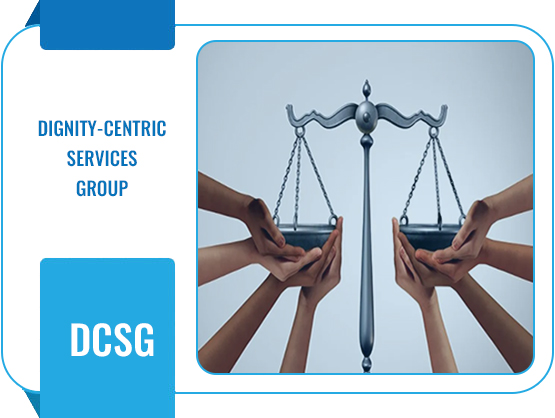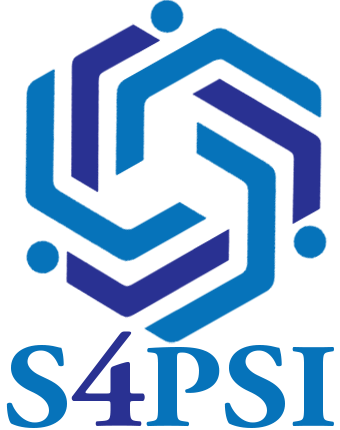
Dignity-Centric Services Group (DCSG)
Advancing Human Dignity in Public Services
Introduction: Redefining Public Service through Dignity-Centric Innovation
The Dignity-Centric Services Group (DCSG) is a pioneering research initiative dedicated to transforming public sector services to prioritize and uphold human dignity. With a particular focus on vulnerable populations-including children, the elderly, and individuals with disabilities-DCSG seeks to eliminate systemic violations of dignity by reengineering service delivery models through scientific, technological, and ethical advancements.
This initiative addresses a critical gap in public services, where bureaucratic inefficiencies, technological bias, and outdated policy frameworks often lead to dehumanizing experiences for those most in need. By integrating cognitive science, computational models, and emerging AI-driven methodologies, DCSG aims to construct a new paradigm of dignity-centric governance, where services are not merely functional but imbued with respect, empathy, and human-centered intelligence.

Research Foundations: Toward a Scientific Framework for Dignity-Centric Systems
DCSG’s research is structured around the fundamental scientific and computational principles of dignity, exploring how dignity can be:
- Defined and structured within ontological frameworks
- Quantitatively and qualitatively measured
- Perceived and experienced differently across cultures and demographics
- Defined and structured within ontological frameworks
- Enhanced through cutting-edge monitoring and computational methods
These research dimensions are systematically addressed through the following core research concentration:
Dignity Ontology: Constructing a Formalized Framework
Understanding and preserving dignity requires a structured ontology that defines:
- The fundamental dimensions of dignity (e.g., autonomy, respect, privacy, fairness)
- Contextual expressions of dignity in different service environments (e.g., healthcare, social welfare, digital services)
- The intersection of dignity with policy, ethics, and legal frameworks
The development of a computable dignity ontology enables AI-driven automated dignity assurance systems that can analyze, predict, and mitigate dignity violations in public services.
Cognitive Science of Dignity: Understanding Human Perceptions
DCSG explores the neuroscientific and psychological underpinnings of dignity, investigating:
- How individuals perceive dignity violations and affirmations
- The cognitive and emotional impact of dignity-driven interactions
- The role of bias and cultural context in dignity-related experiences
By integrating cognitive science insights, public service systems can be redesigned to optimize human well-being while ensuring equitable service delivery.
Measurement of Dignity: Developing Quantifiable Metrics
Measuring dignity is a complex challenge that requires multi-modal assessments, including:
- Neurocognitive and behavioral metrics (e.g., stress response, engagement levels)
- AI-driven sentiment analysis of service interactions
- Crowdsourced dignity perception datasets for machine learning models
By establishing dignity as a quantifiable metric, policymakers and service providers can track improvements and identify systemic failures.
Perceived Dignity Values: Mapping Subjective and Cultural Variations
Dignity is often context-dependent, influenced by cultural norms, societal structures, and personal experiences. DCSG’s research in this domain seeks to:
- Map global dignity variations across different communities
- Develop adaptive dignity models for diverse service environments
- Train AI systems to recognize and respect contextual dignity expectations
Behavior Models of Dignity: Predicting and Influencing Service Interactions
DCSG integrates behavioral modeling techniques to analyze how dignity can be:
- Violated or reinforced in public service interactions
- Institutionalized into service design through AI-driven policies
- Enhanced using nudging techniques that influence positive behaviors
By developing computable dignity-based behavioral frameworks, service providers can proactively design dignity-affirming interactions.
Computable Anthropological Models of Dignity: Bridging Tradition and Technology
Using computational anthropology, DCSG examines how dignity is:
- Expressed across historical and cultural narratives
- Eroded or reinforced through technological advancements
- Translatable into AI-driven service frameworks
This research ensures that technological interventions remain culturally sensitive and ethically aligned with human dignity principles.
Computational Handicap Models: Ensuring Inclusive Service Design
Individuals with disabilities often experience compounded dignity violations due to poorly designed service frameworks. DCSG develops computational models to:
- Simulate disability-centric service interactions
- Identify and correct biases in AI and automation systems
- Enhance assistive technology and adaptive service design
These models enable equitable accessibility frameworks, ensuring that dignity remains a core component of disability-inclusive public services.
Quantum Models for Dignity Expectation Matching: Next-Gen Predictive Systems
Quantum models are being explored to anticipate and match dignity expectations in real time, leveraging:
- Quantum probability distributions to model diverse human dignity perceptions
- Real-time optimization of dignity-centric service delivery
- Multi-state analysis to predict and prevent potential dignity violations
This cutting-edge approach ensures that public services remain adaptive, personalized, and dignity-centric.
WiFi-Based Dignity Scene Monitoring: Privacy-Preserving Dignity Regulation
DCSG is exploring MIT-developed WiFi-based monitoring technologies to create non-invasive dignity regulation systems. These systems can:
- Detect distress or violations in service environments without cameras
- Ensure privacy while safeguarding vulnerable individuals
- Enable AI-driven dignity regulation in healthcare, social services, and public infrastructure
This research balances dignity protection and privacy, ensuring that monitoring systems do not inadvertently become sources of violation themselves.
Computable Dignity Diffusion Pathways: Engineering Equitable Dignity Flow
Dignity must diffuse across systems, policies, and interactions in structured and sustainable ways. DCSG is engineering computable dignity diffusion models to:
- Map dignity propagation across institutional structures
- Identify dignity bottlenecks and gaps in service ecosystems
- Develop AI-driven interventions that enhance dignity across digital and physical services
By systematically engineering dignity diffusion, public services can evolve into self-sustaining dignity-centric ecosystems.
Transforming Public Services into Dignity-Driven Ecosystems
The Dignity-Centric Services Group (DCSG) is at the forefront of a paradigm shift in public service innovation. By integrating computational models, cognitive science, AI, and quantum frameworks, the group is redefining dignity as a measurable, enforceable, and scalable principle in public sector governance.
Through scientific rigor, technological breakthroughs, and policy integration, DCSG envisions a world where dignity is not an afterthought but the foundation of public service delivery. This research initiative is not just about fixing broken systems-it is about reengineering governance to empower, respect, and uplift every individual it serves.
